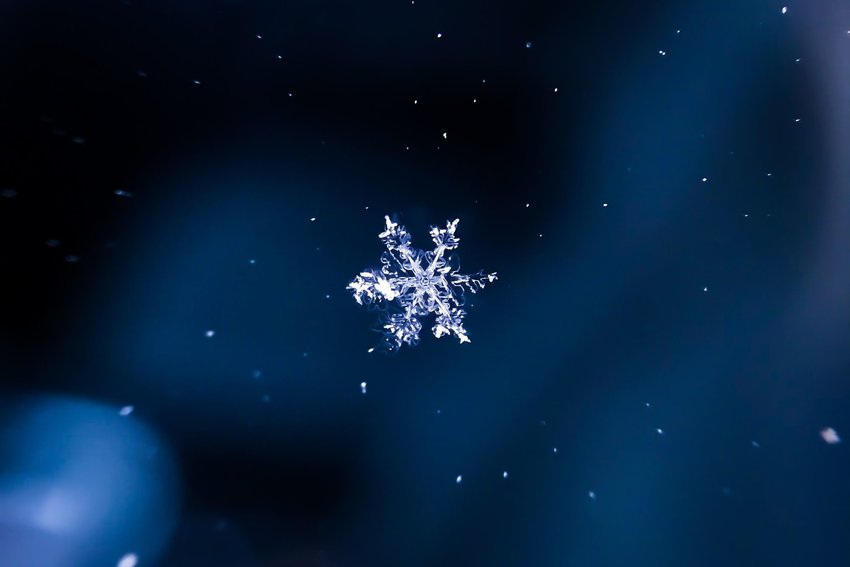The weather outside may very well be frightful where you are, but before you hunker down in front of the fire, why not try getting inspired by winter instead? We’ve dug deep into Old Man Winter’s archives to round up traditional words and expressions related to the coldest season of the year. Try bringing one back to freshen up your perspective during these dark wintry days.
Gelid
If you’re throwing on all the layers, chances are it’s "gelid" — or intensely cold — outside. This early 17th-century word stems from the Latin “gelu,” meaning frost. On a similar phonetic note, the word "algid" means chilly, although it’s most often used today by doctors, referring to someone with an abnormally low temperature.
Frigorific
What makes something cold? That may be up for debate, but you can label it "frigorific" to suggest it is causing or producing cold. Anything from an A/C unit in the summer, to a gusty breeze in the winter, to an icy ex-boyfriend, in fact, can be frigorific.
Snow-Broth
Used in the 1600s, this evocative word was used to describe freshly melted snow. In other words, winter’s soup!
Sposh
This mash-up word, derived from "slush" and "posh," means soft, slushy mud or snow. The posh part doesn't refer to being a fancy pants, but instead comes from an archaic definition of the word, meaning a slushy mass.
Wassail
If you’ve ever heard the traditional festive tune “Here We Come A-Wassailing,” you may have asked yourself, what is "wassailing"? You may assume it’s like caroling, but it really means visiting someone’s home to enjoy a cup of wassail, a drink made from mulled ale, curdled cream, roasted apples, eggs, and spices. Consider it a Middle Ages “hygge” social gathering.
Apricity
This warm-hearted word was coined by 1600s dictionary writer Henry Cockeram and means “the warmth of sun in winter.” The next time you feel some rays on your face, channel this poetic, if underused, word.
Grue
Before Groot and Guardians of the Galaxy, the word "grue" was mostly known (but rarely used) as a verb meaning to shiver with cold. It’s an Old English/German word that is tied to the word "gruesome" — appropriate for how some winter warriors may feel after shoveling their driveway and shivering the whole way.
Brumal
We may think of winter weather as brutal, but flip a letter and you’ve got "brumal," which means belonging to winter. It’s related to the original word for the winter solstice, "brūma." "Niveous" and "hiemal" have similar wintry definitions, although "niveous" is more specifically about things "snowy or resembling snow."
Onding
Not every word on this list is completely archaic — "onding" is a regionalism still used in parts of Scotland and Northern England. It refers to a heavy snowfall. Bonus: It can also be used to describe a heavy rainfall.
Skift
On the other end of the snowfall spectrum from "onding," a "skift" is a light fall of snow (or rain). Think: flurries that flutter around or flakes that seem to melt before they hit the ground. It’s thought to come from the Scottish verb “skiff,” meaning to lightly move across a surface while barely touching it.
Hagger
Our teeth chatter when we’re cold (or scared), but a few hundred years ago, you might have said that your teeth "hagger" when exposed to subzero temperatures.
Snirl
This 18th-century word feels phonetically on point for its definition of "a stuffy head cold." Like a few others on this list, it has Scottish origins.
Laying-Weather
This 18th-century expression refers to any weather condition where snow lays on the ground — from light dustings to heavily packed mid-winter snow.

